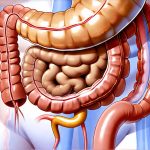Digestive discomfort is something most of us experience at some point – that uncomfortable bloating after a large meal, the occasional heartburn, or the unwelcome surprise of gas. It’s rarely fun, but often manageable with simple adjustments to our daily habits and readily available remedies. While persistent digestive issues warrant a visit to a healthcare professional, many instances of discomfort are temporary and can be alleviated quickly using straightforward techniques. This article will explore some quick fixes for common digestive complaints, offering practical advice to get you feeling more comfortable. We’ll focus on strategies you can implement right now to ease your symptoms and restore balance to your gut.
Digestive systems are incredibly sensitive, responding to everything from the food we eat to our stress levels. Understanding this sensitivity is the first step towards finding relief. Often, quick fixes aren’t about curing a problem, but rather mitigating symptoms and creating an environment where your digestive system can function optimally again. We will cover approaches for bloating, heartburn, gas, and general indigestion, offering solutions that are both effective and easy to incorporate into your routine.
Soothing Bloating & Fullness
Bloating is often caused by excess gas production or slow digestion. One of the quickest ways to address it is through gentle movement. A short walk, even just around the house, can help stimulate intestinal contractions and move things along. Avoid lying down immediately after eating; gravity helps! Sipping on peppermint tea can also be beneficial as peppermint has properties that relax the digestive tract muscles, reducing spasms and allowing gas to pass more easily.
Another often-overlooked factor is chewing thoroughly. We frequently eat too quickly, not giving our bodies enough time to break down food properly. This leads to undigested food reaching the intestines, where it ferments and produces gas. Taking smaller bites and focusing on mindful chewing can significantly reduce bloating. Consider incorporating probiotic-rich foods like yogurt or kefir into your diet—these introduce beneficial bacteria that aid digestion and minimize gas production over time.
Tackling Heartburn & Acid Reflux
Heartburn, that burning sensation in the chest, is usually caused by stomach acid flowing back up into the esophagus. A quick fix involves raising the upper body. If you’re experiencing heartburn while lying down, prop yourself up with pillows to prevent acid reflux. Avoid foods known to trigger heartburn, such as spicy or fatty foods, citrus fruits, chocolate and caffeine. These can relax the lower esophageal sphincter, allowing stomach acid to escape.
Ginger is a fantastic natural remedy for heartburn. You can consume it in various forms – ginger tea, crystallized ginger, or even a small piece of fresh ginger. It has anti-inflammatory properties that soothe the digestive tract. Also, consider avoiding large meals before bedtime; giving your body time to digest properly can prevent acid buildup during sleep. Baking soda dissolved in water (a very small amount – ½ teaspoon) can offer temporary relief by neutralizing stomach acid, but this shouldn’t be a regular solution as it can disrupt electrolyte balance.
Gentle Remedies for Gas Relief
Gas is an inevitable part of digestion, but excessive gas can be incredibly uncomfortable. Activated charcoal capsules are surprisingly effective at absorbing excess gas in the digestive system. Take them with water after a meal that tends to cause bloating, but be aware they can interfere with medication absorption so check with your pharmacist if you’re on any medications.
Beyond activated charcoal, certain dietary adjustments can make a big difference. Reducing intake of carbonated beverages and cruciferous vegetables (like broccoli and cabbage) may help minimize gas production. Identifying foods that specifically trigger gas for you is also crucial – keeping a food diary can reveal patterns and lead to personalized solutions. Remember to avoid swallowing air while eating or drinking, which can contribute to bloating and gas buildup.
Dietary Considerations & Long-Term Support
While quick fixes offer immediate relief, long-term digestive health relies on consistent dietary choices. Incorporating fiber-rich foods like fruits, vegetables, and whole grains supports healthy bowel movements and prevents constipation, a major contributor to digestive discomfort. Staying adequately hydrated is also crucial; water helps move food through the digestive system efficiently.
Consider reducing processed foods, sugary drinks, and excessive alcohol consumption. These can disrupt gut flora and exacerbate digestive problems. Focusing on a balanced diet with plenty of fresh, whole foods provides the foundation for a happy and healthy digestive system. Fermented foods like sauerkraut and kimchi are also excellent sources of probiotics that promote gut health over time.
Ultimately, managing digestive discomfort is about understanding your body’s signals and responding accordingly. These quick fixes offer immediate relief for common symptoms, but prioritizing long-term habits – mindful eating, proper hydration, and a balanced diet—is essential for sustained digestive wellbeing.
These are just starting points, and what works best will vary from person to person. Experiment with these strategies to find what helps you feel your best, and remember that seeking professional medical advice is always the right course of action if discomfort persists or worsens.


















